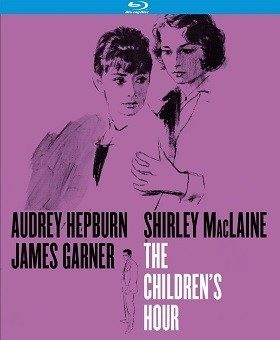Lillian Hellman’s The Children’s Hour was rather a cause célèbre when it premiered on Broadway in 1934 and ran for a year and a half. So notorious was it, in fact, that the first movie version in 1936 was renamed These Three with the play’s central dilemma changed to a different kind of love triangle than the one in the play. William Wyler directed this first film version, and he was also behind the camera for the second movie adaptation in 1961 with the original title reinstated and the original thematic material in place. Despite its more faithful adherence to the original play, the second film version doesn’t move as well, doesn’t seem pitched quite right, and is rather stagey. In a more modern era, it seems a bit more naïve about human emotions and realizations, too.

Studio: MGM
Distributed By: Kino Lorber
Video Resolution and Encode: 1080P/AVC
Aspect Ratio: 1.66:1
Audio: English 2.0 DTS-HDMA
Subtitles: English SDH
Rating: Not Rated
Run Time: 1 Hr. 47 Min.
Package Includes: Blu-ray
keep caseDisc Type: BD25 (single layer)
Region: A
Release Date: 08/05/2014
MSRP: $29.95
The Production Rating: 3.5/5
Video Rating: 3.5/5 3D Rating: NA
Audio Rating: 3.5/5
Special Features Rating: 1/5
Overall Rating: 3.5/5
Reviewed By: Matt Hough
Support HTF when you buy this title:






